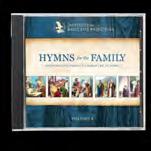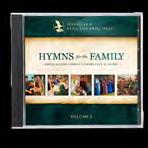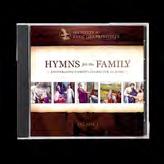Truthfulness
Earning future trust by accurately reporting past facts
“Wherefore putting away lying, speak every man truth with his neighbour: for we are members one of another.”


EPHESIANS 4:25
SAMUEL DELIVERS A DIFFICULT MESSAGE
“And Samuel told him every whit, and hid nothing from him.”
I SAMUEL 3:18a

BIBLICAL CHARACTER ILLUSTRATED CURRICULUM Illustrated in Scripture, Illustrated in Life
Prophet
SPIRITUAL GIFT:
CONTENTS
2 Introduction
2 How to Use This Curriculum
3 Goals and Objectives
4 Character Quality Overview
5 Truthfulness in Scripture
6 Lesson 1: Speak the Truth
7 Bible Story: Samuel Delivers a Difficult Message
8 Memory Verse: Ephesians 4:25
9 Activity: Tower of Truth

10 Lesson 2: Give All the Facts
11 Bible Story: She Told Him All the Truth
12 Memory Verse: Proverbs 12:17
13 Activity: The Truthfulness Guessing Game
14 Lesson 3: Avoid All Lying
15 Bible Story: The Lie of a Greedy Servant
16 Memory Verse: Psalm 120:2
17 Activity: A Misleading Measure
18 Lesson 4: Never Cheat or Steal
19 Bible Story: A Son Deceives and a Father Grieves
20 Memory Verse: Proverbs 21:6
21 Activity: Crossword Puzzle
22 Additional Resources
22 Truthfulness GEMs
23 Journal and GEM Mine
24 Hymn Sheet Music: “Jesus Loves Me, This I Know”
25 Hymn History: “Jesus Loves Me, This I Know”




 by Anna Warner
by Anna Warner
26 Explaining Salvation to a Child
27 Reproducible Coloring Pages
31 Recommended Resources


Biblical Character Illustrated Curriculum
Illustrated in Scripture
“The testimony of the Lord is sure, making wise the simple” (Psalm 19:7b). Biblical character is illustrated in this curriculum through both artwork and lessons from the lives of people in God’s Word. We most often benefit from the positive examples of faithful men and women. “For whatsoever things were written aforetime were written for our learning, that we through patience and comfort of the scriptures might have hope” (Romans 15:4). There were also people in the Bible who are representations of poor character, and we can learn from their lives as well. “Now these things were our examples, to the intent we should not lust after evil things, as they also lusted” (I Corinthians 10:6). We would be wise to learn from the testimonies God has given us in Scripture.
Illustrated in Life
“Faith cometh by hearing, and hearing by the word of God” (Romans 10:17). Hearing the Word of God causes us to grow in faith. This curriculum offers many practical applications of God’s Word to everyday life. “But be ye doers of the word, and not hearers only” (James 1:22). As God enables us to act in faith, our lives as believers will illustrate His character to others.
The character of God is illustrated in Scripture. May it also be illustrated in our lives.
Character Quality Overview


What Is Truthfulness?
Read aloud and discuss what truthfulness means and how it applies to life.

Theoperational definition of truthfulness is “earning future trust by accurately reporting past facts.” When your life and words consistently communicate what is honest and accurate, others will learn that they can trust you and believe what you say. Being truthful means reporting details accurately and admitting when you are wrong. Telling the truth can be difficult and often requires courage and humility. Truthfulness is not only speaking facts with your lips, but also acting with integrity and avoiding secret sins, recognizing that God sees and knows everything. Honest people have nothing to hide because they have done what is right.
can draw near to God and cleanse our hearts with His truth. (See Jeremiah 17:9, James 4:8.)
God’s Word gives an accurate account of God’s character, of past and future events, and of God’s moral truth.
The opposite of truthfulness is deception. People may twist the truth in order to gain approval or avoid punishment. Deception often involves telling lies, stealing, or secretly doing what authorities said not to do. When caught doing wrong, a dishonest person may blurt out more falsehoods to cover up the initial offense. He misleads by leaving out important details, and may exaggerate, make excuses, or tell half-truths. A deceptive person might cheat on tests, making a teacher believe that the work is his own when it really is not. Although we are born with deceitful hearts, we
Where does truth come from? Can it come from within ourselves? Our human nature is to try to find our way on our own and define truth for ourselves. Some people say that truth is relative, which means they think what is right may vary depending on the situation. They attempt to create “their own truth” to justify themselves. However, truth does not change based on a person’s opinions and desires. Jesus said, “I am the way, the truth, and the life: no man cometh unto the Father, but by me” (John 14:6). Jesus is the answer to our need for absolute truth. He has given His Word so that we can know what is right. God knows all the facts, even when someone tries to hide or suppress the truth. When Satan tries to make you think God is not trustworthy or that you are worthless, remember Satan is the father of lies and his goal is to distort reality and deceive you. Meditate on the truth. God’s Word says that God is faithful and that you are valuable to Him. The absolute truth of the Bible can set you free. (See John 8:31–32.)
A mirage in the desert appears when hot air creates an illusion of water that is not really there. When a weary traveler does not find the water he is expecting, he realizes he has been deceived. Deception causes people to base decisions on misinformation to their own hurt.

4
Truthfulness in Scripture
As you read and study God’s Word, you will see Who He is! Be willing to be changed by Him so Christ can be seen through your life and others will glorify God.
The Character of God

We see examples of truthfulness in God’s character in the following ways:
• God’s ways and judgments are sure because He is the God of truth, with no error or injustice.
(See Exodus 34:6, Deuteronomy 32:4.)
• God cannot lie. He has always told the truth and kept His Word.
(See I Kings 8:56, Psalm 119:160, Titus 1:1–2.)
• God is all-knowing and omnipresent, meaning He is everywhere and nothing is hidden from Him. He is never deceived.
(See Jeremiah 23:24.)
• Jesus, full of grace and truth, is Truth.
(See John 1:14, 14:6.)
• Jesus told people, such as one young man, what they needed to hear, not what they wanted to hear.
(See Matthew 19:20–22.)
• Jesus spoke accurately and never used His mouth to deceive.
(See John 18:37, Isaiah 53:9.)
• The Holy Spirit is Truth and guides believers into all truth.
(See John 16:13, I John 5:6.)
TRUTHFULNESS KEY VERSE
“Wherefore putting away lying, speak every man truth with his neighbour: for we are members one of another.” EPHESIANS 4:25
Truthfulness in My Life
Now let’s examine some ways God wants us to live out truthfulness daily.
• How do lies affect my relationship with the Lord?
(See Psalm 101:5–7.)
• What are the dangers of exaggerating my strengths or pretending to be better than others?
(See Proverbs 16:18, 29:23.)
• What helps me to see myself accurately as God does and to know what needs to change?
(See John 17:17, James 1:22–25.)
• What does God think of lying?
(See Proverbs 6:16–19, Exodus 20:16.)
• How can I overcome the temptation to cheat?
(See Proverbs 4:14–15.)
• How does my truthfulness affect others?
(See Proverbs 14:25.)
• What will help me recognize and reject Satan’s lies?
(See Ephesians 6:13–18, Psalm 119:104.)

5
Speak the Truth
Sometimes it is easy to speak the truth and sometimes it is not. Have you ever been tempted to lie or say nothing when you know you should speak the truth? Perhaps you need to tell your parents something you’re hiding from them. Maybe you want to impress someone and you’re tempted to exaggerate. Perhaps a friend asks if you really believe the Bible, and you fear he may mock your beliefs. Sometimes people react to the truth. God can give you courage to speak what is true, even if it is difficult for you to say or difficult for the other person to hear. In Ephesians 4:15, God tells us to speak the truth in love so that we and others may grow in Christ. Depend on Him for the grace and power to be truthful.

TRUTHFULNESS
Earning future trust by accurately reporting past facts



6 INTRODUCTION
INTRODUCTION GOD ENABLES ME TO
Samuel Delivers a Difficult Message
BIBLE STORY
Samuel Delivers a Difficult Message
Eli the high priest welcomed the couple who had traveled to Shiloh to worship the Lord. This year they brought their young son Samuel to stay and to serve God at the temple of the Lord. Eli’s adult sons also served God as priests. Sadly, however, they did not know or obey the Lord. As Eli’s sons offered sacrifices, they often stole portions of the meat that belonged to God and shared them with Eli. They threatened anyone who opposed them and even committed immorality with women in the sacred place. Eli knew of his sons’ sins and rebuked them but did nothing to stop their wrongdoing. He honored his sons more than God.
During this time, God rarely spoke to anyone in Israel. Even though Samuel served God, he did not yet know Him. One night as Samuel lay in bed, he heard a voice calling his name. Thinking it was Eli, Samuel ran to see what the priest needed. But Eli had not called young Samuel. When this happened three times in the same night, Eli realized that the Lord was calling Samuel! What message did the Lord give the boy? Would God give Samuel the courage to speak the truth and deliver the message, even if it was difficult?
Let’s read the Bible story in I Samuel 3:8–21 and then discuss the following questions.
1. When Samuel heard God calling, how did he answer? (See I Samuel 3:10.)
When do you listen for God to speak to you?
(See Deuteronomy 6:6–7, Joshua 1:8.) Do you expect God to direct you through His Word?
2. How would God’s message affect those who would hear? (See I Samuel 3:11.)
Why can telling the truth at times be difficult or uncomfortable?
3. What message did God give Samuel?
(See I Samuel 3:12–14.) Had God previously given this warning through anyone else?
(See I Samuel 2:27–29, 33–35.)
What message has God given you to share through your example and words? (See Matthew 5:19.) Why should the words you speak agree with God’s Word?
(See Titus 2:7–8, Leviticus 26:23–24.) What might people say that does not agree with God’s Word?

4. What did Samuel do after God had spoken to him?

(See I Samuel 3:15a.)
Should you be eager to tell others what they have
done wrong? (See Galatians 6:1.) Could that reveal pride and self-righteousness in yourself?
5. How did Samuel feel about telling Eli what God had said? (See I Samuel 3:15b.)
What should you do when you are afraid to tell the truth? (See Joshua 1:9.)
6. What did Eli say to Samuel the next morning? (See I Samuel 3:16–17.)
What may happen if you leave out details and only tell part of the truth? (See Luke 8:17.)
7. How much of God’s message did Samuel tell Eli? (See I Samuel 3:18.)
How should you respond when asked for pertinent information? (See Zechariah 8:16, Colossians 3:9.) When may it be wiser not to give information?
8. What continuing ministry did God give to Samuel? (See I Samuel 3:19–21.)
Why does God tell us to speak truth to one another? (See Hebrews 3:13.) How will your truthfulness affect your future? (See Proverbs 12:19, Luke 16:10.)
7
LESSON 1 Speak the Truth
Revealing the character of Christ through the stories in His Word.
SAVE 20% on any individual Biblical Character Illustrated booklets

Use coupon: BCICBOOKLET


Biblical Character Illustrated Curriculum
Discover this unique tool that uses the stories in Scripture to illuminate character qualities God wants to develop in the lives of His people. This curriculum contains multiple ways to teach character to kids and give them a vision for building character through faith in Christ!

Single Booklets: $10 each
Complete Set: $379 (SAVE 23%)
OTHER BIBLICAL CHARACTER RESOURCES

Single PDF Download: $3 each
PDF Download Set: $109 (SAVE 25%)

Biblical Character Illustrated 49-Booklet Set
Includes 2 bonus items: Calendar + Understanding Spiritual Gifts

Power for True Success
Insightful, Biblical studies on all 49 character qualities
Hymns for the Family, Volumes 1–4




Companion hymns for each character quality
Character Sketches, 4-Volume Set
Timeless resources to show God’s character relfected in creation

Shop these resources at store.iblp.org. • Questions? Call 903-636-9600 or email biblicalcharacter@iblp.org.



























